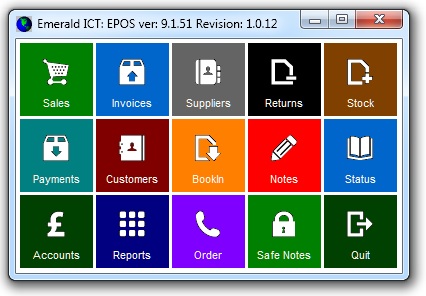The operating system you choose for your EPOS software is critical in determining the successful implementation of the software. This is because an operating system serves as the mediator between your software and the actual computer hardware. Examples of operating systems available in the market include DOS, .NET, Linux, Windows, Java, and many others. Understanding the differences between each operating system can help you make the right choice. Below we look at some of the operating systems that are commonly used by retailers.
DOS
Despite being a relatively old platform, Disk Operating System (DOS) continues to serve its purpose in a variety of businesses. However, DOS is not very popular among retailers because it requires custom programs for it to interface with other databases. It also does not allow for clicking with the mouse or copying and pasting text. There are two ways of using DOS:
- On its own: On its own, DOS is simple, very stable, easy to install, and is not prone to viruses. However, this approach is limiting as it forces a retailer to only use DOS applications.
- With Windows: Most retailers prefer using windows and run their legacy applications on a DOS task. This method allows retailers to run multiple programs at the same time.
Windows
In the retail industry, Windows is the most popularly used operating system. For this reason, a good number of POS software manufacturers design their software to run on Windows. This platform offers retailers a variety of choices ranging from Windows 98 to Windows XP. When used properly, Windows is a very stable and powerful operating system.
Linux
Linux is loved for its affordability and high level of stability. Linux’s stability enables it to run until the system is shut off or the hardware fails. It also has the advantage of having an open source code, which allows for custom development of the operating system. Since Linux is free, it does not come with tech support like other paid operating systems.
MAC
MAC is a stable and reliable operating system with relatively very few cases of viruses and failures. When properly configured, the system has a long life span and can run effectively until the user decides to change or upgrade. Despites supporting applications such as Word and QuickBooks, very few EPOS systems run on MACs. For this reason, MAC as an operating system is not popular in the retail industry.
Open Platforms
Open platforms include operating systems such as .NET, Java, Android, and other browser based software programs. These types of platforms give retailers the most flexibility as they can run on almost any operating system. For instance, a Linux server can allow Java applications to run on it.
When looking for an operating platform for your EPOS software, it is advisable to first analyze the different aspects of your business and then choose the system that best suits your needs. Sometimes however, it is not necessary to look for an operating platform as some EPOS software come with a pre-configured operating system.
David Allen is a technology enthusiast who writes all matters technology touching on a variety of topics. If you are in search of a company that specializes in the design and supply of intelligent EPOS systems, David encourages you to go to this site.





